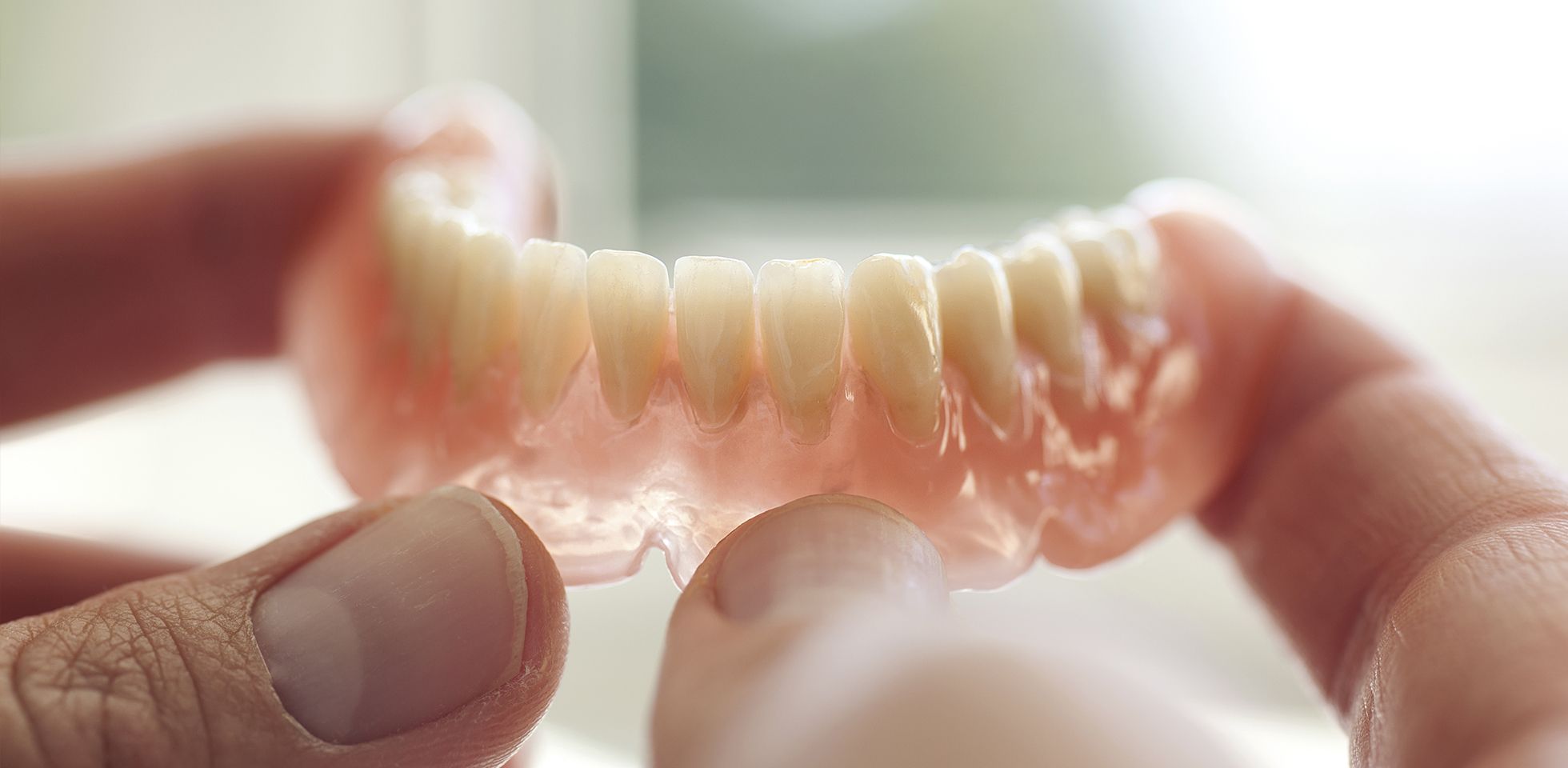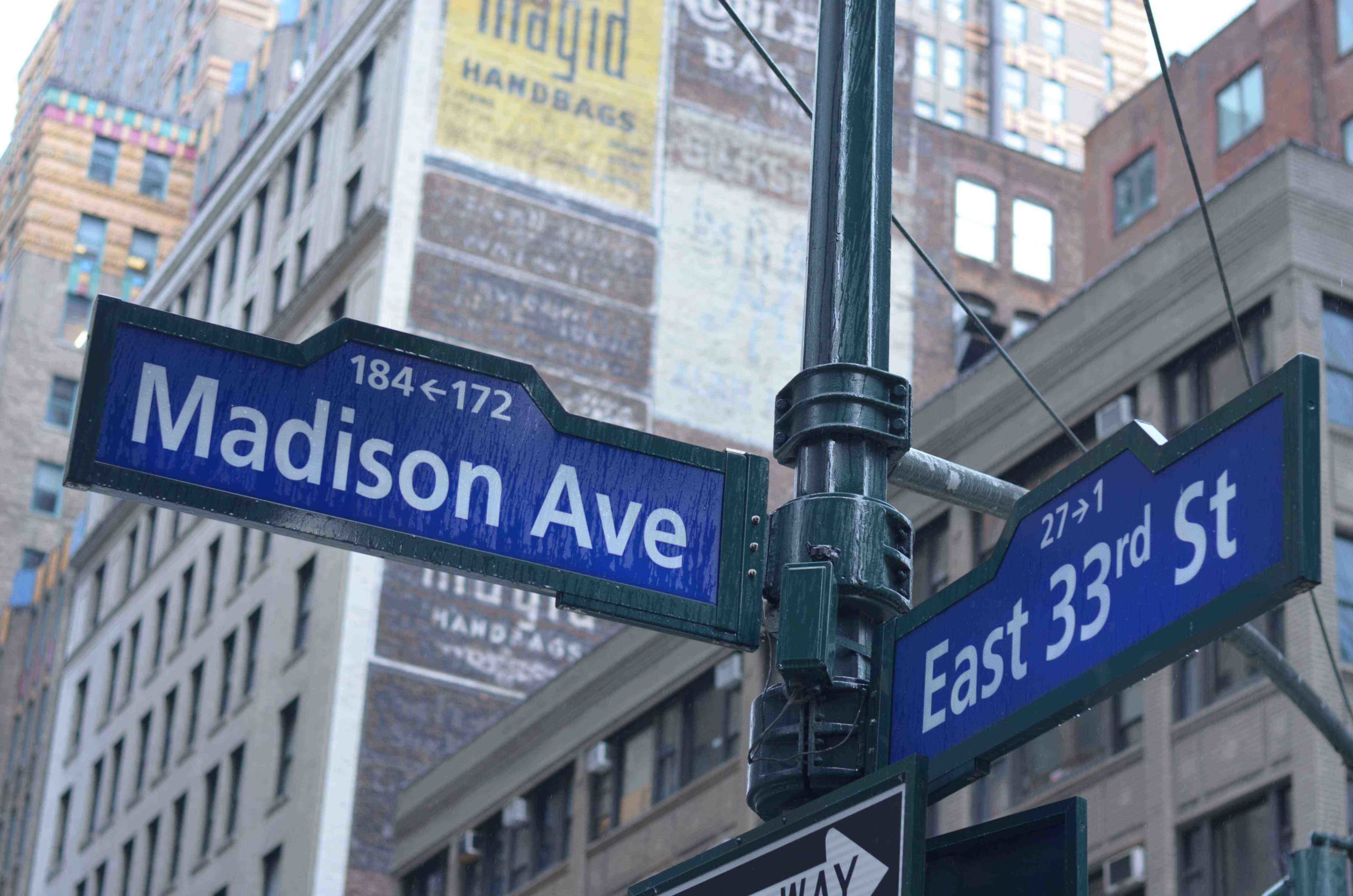
Dentures are prosthetic applications that function as normal teeth. Many will remember the removable dentures that our grandparents wore. They could not eat certain foods like corn on the cob or an apple. They would bring their lips over their denture to hold them in place, and of course, they would end up in a glass of water on their night table when they went to sleep. Those old dentures were scary, but they served a great purpose. Back in those days when a patient lost their teeth all that we could offer them was a removable prosthesis aka. the denture.
The denture replaced all their teeth, restoring their collapsed profile and was relatively easy and inexpensive to construct. Modern, cosmetic dentistry has come a long way offering a myriad of choices to replace missing teeth.
Pros And Cons Of Fixed Dentures Vs. Removable Dentures
These new choices are more efficient, cosmetic and more functional than our old removable dentures. The implementation of implants changed the whole game in terms of the restoration of missing teeth and the impossible has become possible.
We will discuss the pros and cons of the different types of devices that can restore your smile, your confidence and your life.
The Removable Denture
Pros:
- Restores all the missing teeth with one device.
- Easy-to-clean, as it comes in and out of the mouth.
- Inexpensive.
- Non-invasive (no needles, drills, etc) all work done without anesthesia.
- Restores the missing bone in addition to the missing teeth, which allows us to restore volume to the face and restore original facial contour full-face and in-profile.
- Gives the dentist and the master technician a clean canvas to create a smile that is cosmetically better than the original one.
Cons:
- It’s removable and can slip out of the mouth at embarrassing moments.
- Doesn’t feel like part of our mouth.
- Cannot eat all foods.
- Can impede proper pronunciation of words.
- Can hinder the taste and smell of foods.
- Patients can be affected emotionally by losing confidence while eating and speaking.
- Prolonged wearing over the years will cause further bone loss of the remaining alveolar ridge.
- Has an average lifespan of 5 years.
Implant-Supported Dentures
Implant-supported denture devices snap onto implants placed in the bone, but do come in and out of the mouth.
Pros:
- Restores all the missing teeth with one device.
- Easy-to-clean, as it comes in and out of the mouth.
- Restores missing bone in addition to the missing teeth, which allows us to restore volume, vertical dimension and facial contour.
- Allows the dentist and the master technician an opportunity to construct a smile that optimizes esthetics and function.
- Provides a much more secure fit than traditional dentures.
- Provides much more function in terms of eating and speaking.
- The palate is smaller on the upper prosthesis which allows a better sense of taste and smell.
- Emotionally it gives patients much more confidence in their activities of daily living.
- Has a lifespan of 5-10 years.
- Implants maintain alveolar bone, thus preventing shrinkage over time.
Cons:
- It’s removable and can come in and out of the mouth and should not be worn when sleeping.
- Although smaller it may still feel like a foreign body in the mouth.
- Certain sticky foods need to be avoided.
- Implants must be placed to hold the denture in place (2-4 implants).
- Increased cost.
- Placement of implants is a surgical procedure that requires local anesthesia.
Partial Dentures
A prosthesis is made when some teeth are missing, usually on both sides of the mouth while the patient maintains some of his original teeth that are used as anchors.
Pros:
- Restores all missing teeth with one device.
- Easy to clean as it comes out at night.
- Inexpensive.
- Provides a more secure fit than a removable denture due to clasps that hold it in place around the remaining teeth in the mouth.
- Increased functionality from a full removable denture.
- Smaller palate on the upper so that taste and smell is not infringed upon.
- A non-invasive procedure to construct which means no drilling and no needles.
- Alveolar bone does not shrink as much as with a full upper removable denture.
- Infrastructure can be made in metal or Flexi-plastic and gum-colored.
Cons:
- Removable must come out when going to sleep.
- Infrastructure must go across the whole palate (unilateral infrastructure unacceptable).
- Clasps commonly break.
- While eating, food can be trapped around infrastructure.
- Places a great deal of horizontal torque on the abutment teeth that the clasps are attached to. This leads to tooth mobility and may even lead to further tooth loss.
Non-Removable Fixed-Implant Partial Dentures
Non-removable fixed implant-supported partial dentures is a prosthesis that is screwed into implant abutments. Usually, a minimum of two to four implants is needed to hold the device.
If a patient has a lot of missing teeth and wants a fixed appliance that doesn’t come out, and is trying to minimize the number of implants that are being placed, this is one of our favorite devices.
Pros:
- A fixed appliance that doesn’t come out by the patient, but can be unscrewed if necessary by the dentist under certain conditions.
- No infringement on the palate, thus allowing smell and taste to return.
- A sturdy appliance that allows the patient to eat almost anything except hard bones and nutshells.
- They can easily eat an apple, corn, or bagel.
- An unobtrusive device that becomes part of the body chemistry.
- Allows clear precise speech.
- Decreases the number of implants needed to restore the arch, thus saving money.
- Able to restore bony defects to a small extent.
Cons:
- Tends to trap food.
- Can be difficult to clean.
Fixed Bridge
This is a prosthesis that is made to replace missing teeth while using pre-existing teeth on both sides of the space to hold a series of crowns and pontics (false teeth) fixed in place in the jaw.
Pros:
- Fixed in place and is not removable.
- Replaces only missing teeth and therefore is unobtrusive.
- Feels harmonious with the mouth.
- Highly functional in terms of eating and speaking; as if you have your original teeth.
- Very cosmetic.
- Cost-efficient.
Cons:
- Must prepare teeth for crowns to hold the bridge in place.
- Pontic area, where false teeth are, may be difficult to clean.
- If something happens to one of the abutment teeth, the entire bridge may have to be replaced.
Implant-Supported Crowns
Implant-Supported Crowns and Implant Supported Fixed Bridge is the “Gold Standard” of modern cosmetic dentistry. Where there is a missing tooth, a titanium implant is gently placed in the bone.
The implant acts as a false root and after 3 months the implant osseous integrates to the bone. An abutment and crown are then replaced which completes the restoration.
Pros:
- Fixed prosthesis.
- Becomes part of the body and the mouth.
- Most natural of all options.
- Live natural teeth are not touched.
- Magnificent esthetics.
- The highest degree of function in eating and speaking, smell and taste restored.
- No false pontic teeth, so no trapping of food.
- Can floss and brush just like natural teeth.
- If something happens to one implant over the years this does not affect the integrity of the other implants next to it.
- Implants maintain bone where they were placed in the edentulous area.
Cons:
- Depending on the number of implants, the cost is a concern.
- A surgical procedure of placement of the implant is needed.
Restore Your Teeth With 172 NYC Dental
There are many wonderful options to restore teeth at 172 NYC Dental. We pride ourselves on customizing a treatment plan that serves each patient individually.
We treat the whole person, not just their missing teeth. When we present your treatment options no matter your age, medical history, dental history, desires, finances, needs, or expectations, they are all taken into consideration to make the most beautiful, cost-efficient prosthesis for you.
Call us at 646-921-5541 and let us restore your confidence and smile.








